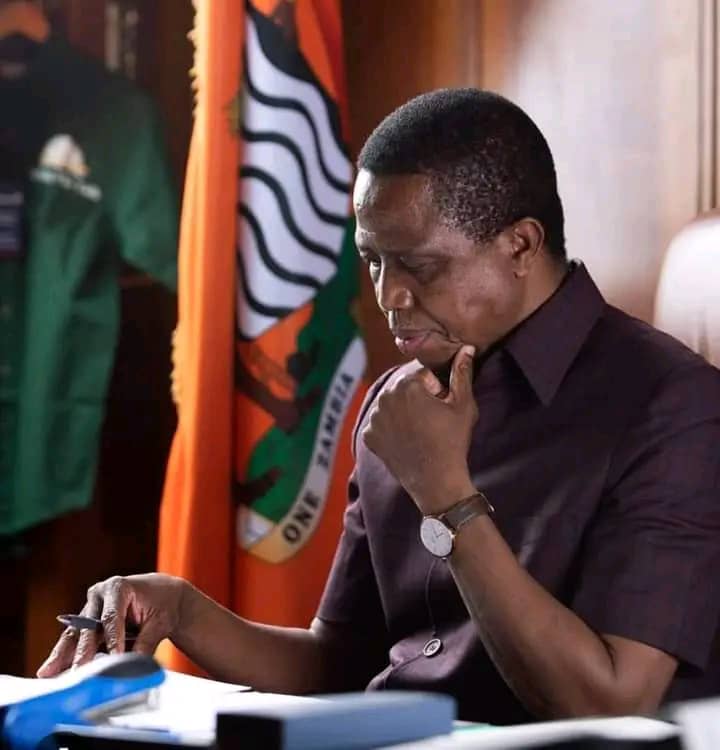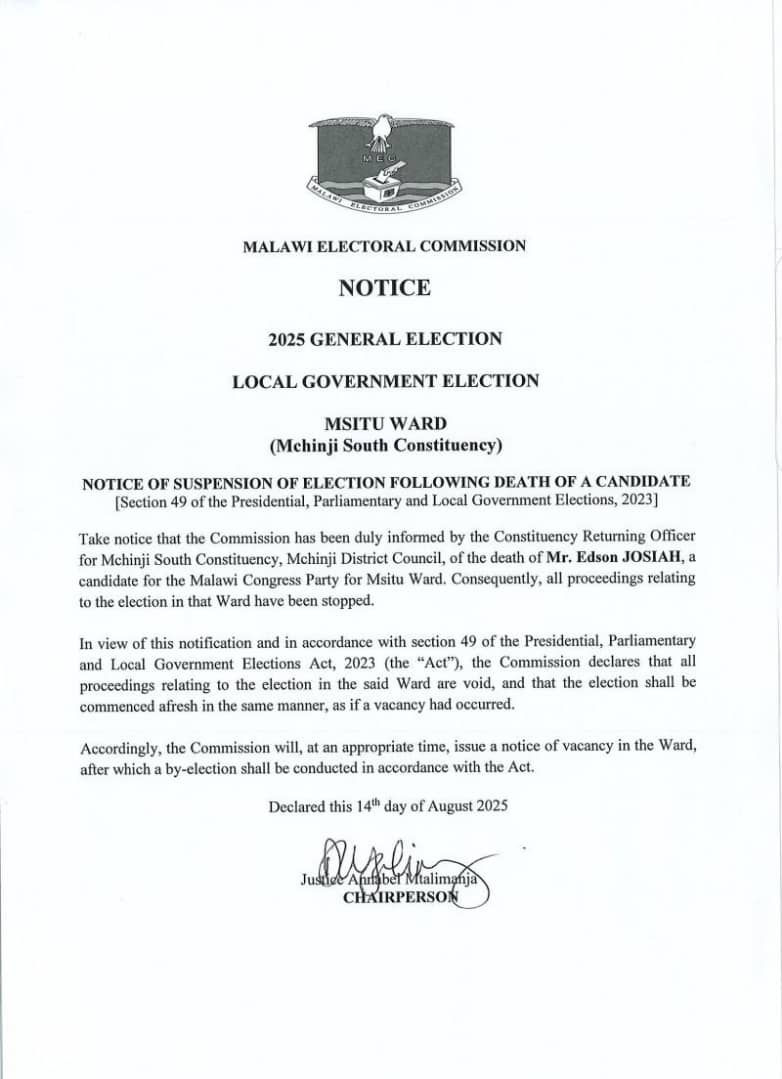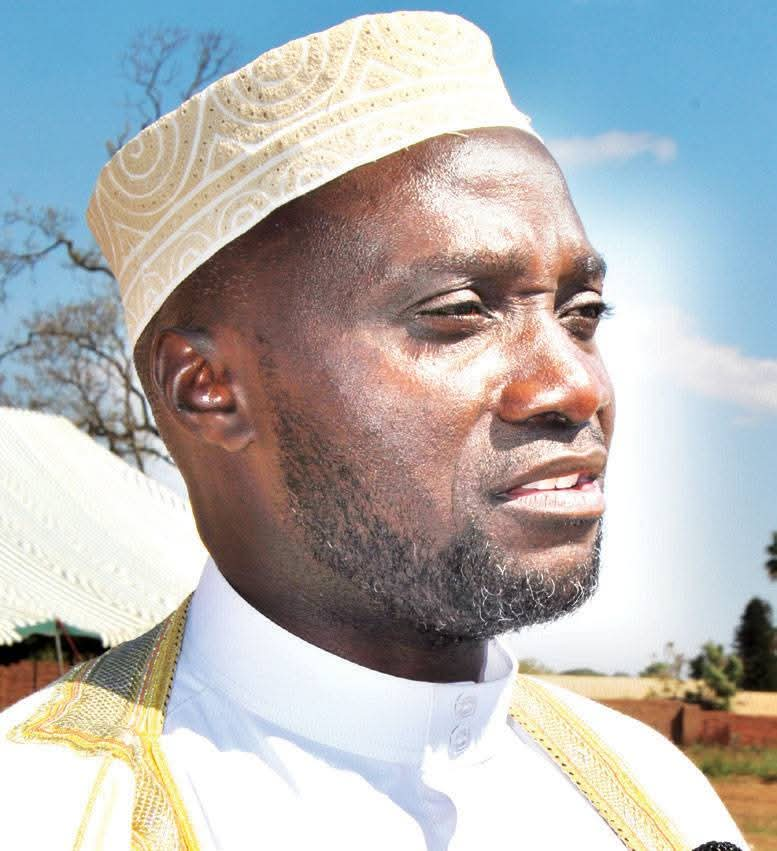By Burnett Munthali
In a significant legal development, former Zambian President Edgar Lungu has lost his bid to have three Constitutional Court judges recuse themselves from hearing a petition challenging his eligibility to contest the 2021 elections and any future elections. The ruling, delivered earlier this week, saw the court dismiss Mr. Lungu’s application in which he had accused the judges of bias.
The three judges at the center of the case—Justice Margaret Munalula, Justice Arnold Shilimi, and Justice Mapani Kawimbe—had been overseeing a petition filed by various political actors who contested Lungu’s eligibility to run for the presidency in 2021, arguing that he had already served two terms. The matter remains critical in Zambian politics, as it could set a precedent for how presidential term limits are interpreted moving forward.
Mr. Lungu’s application to have the judges removed from the case stemmed from allegations of bias. The former president argued that the three justices had demonstrated partiality in handling the case, compromising their ability to deliver a fair and impartial judgment. He further claimed that their past rulings in similar matters showed that they were not likely to be objective in determining his eligibility.
However, the Constitutional Court rejected these claims, ruling that Lungu had failed to provide sufficient evidence of actual bias or misconduct on the part of the judges. The court emphasized that mere dissatisfaction with prior rulings or perceived unfavorable judgments does not meet the threshold for judicial recusal. The ruling reaffirmed the court’s independence, highlighting that public confidence in the judiciary relies on a commitment to upholding the principles of impartiality and fairness.
The petition challenging Mr. Lungu’s eligibility for the 2021 elections arose from debates over Zambia’s constitutional limits on presidential terms. According to the Zambian Constitution, a president is limited to two terms in office. Mr. Lungu, who first assumed the presidency in 2015 after the death of President Michael Sata, contested in and won the 2016 elections. His opponents argued that his five-year tenure before the 2021 election disqualified him from running again, as he had already effectively served two terms.
Lungu’s legal team maintained that his first tenure from 2015 to 2016 was incomplete and therefore should not count as a full term. This interpretation was a point of contention, leading to the petition brought before the Constitutional Court, which seeks clarity on the matter.
The decision to deny Mr. Lungu’s application for recusal could have far-reaching implications for his political career. If the Constitutional Court rules against him in the eligibility case, it would bar him from running for any future presidential elections, potentially marking the end of his political aspirations. This would also reinforce the strict interpretation of Zambia’s two-term limit, signaling a firm stance on constitutional adherence.
The ruling is also significant for Zambia’s judiciary. By rejecting Lungu’s attempt to disqualify the judges, the court has sent a clear message about its commitment to maintaining judicial independence, even when dealing with high-profile political figures. It underscores the court’s role as the guardian of the constitution, responsible for ensuring that no individual or political leader is above the law.
As Zambia continues to navigate a politically charged environment, this case will be closely watched by legal experts, political analysts, and the public alike. The final decision on Mr. Lungu’s eligibility could reshape the political landscape and influence future interpretations of presidential term limits in Zambia.




